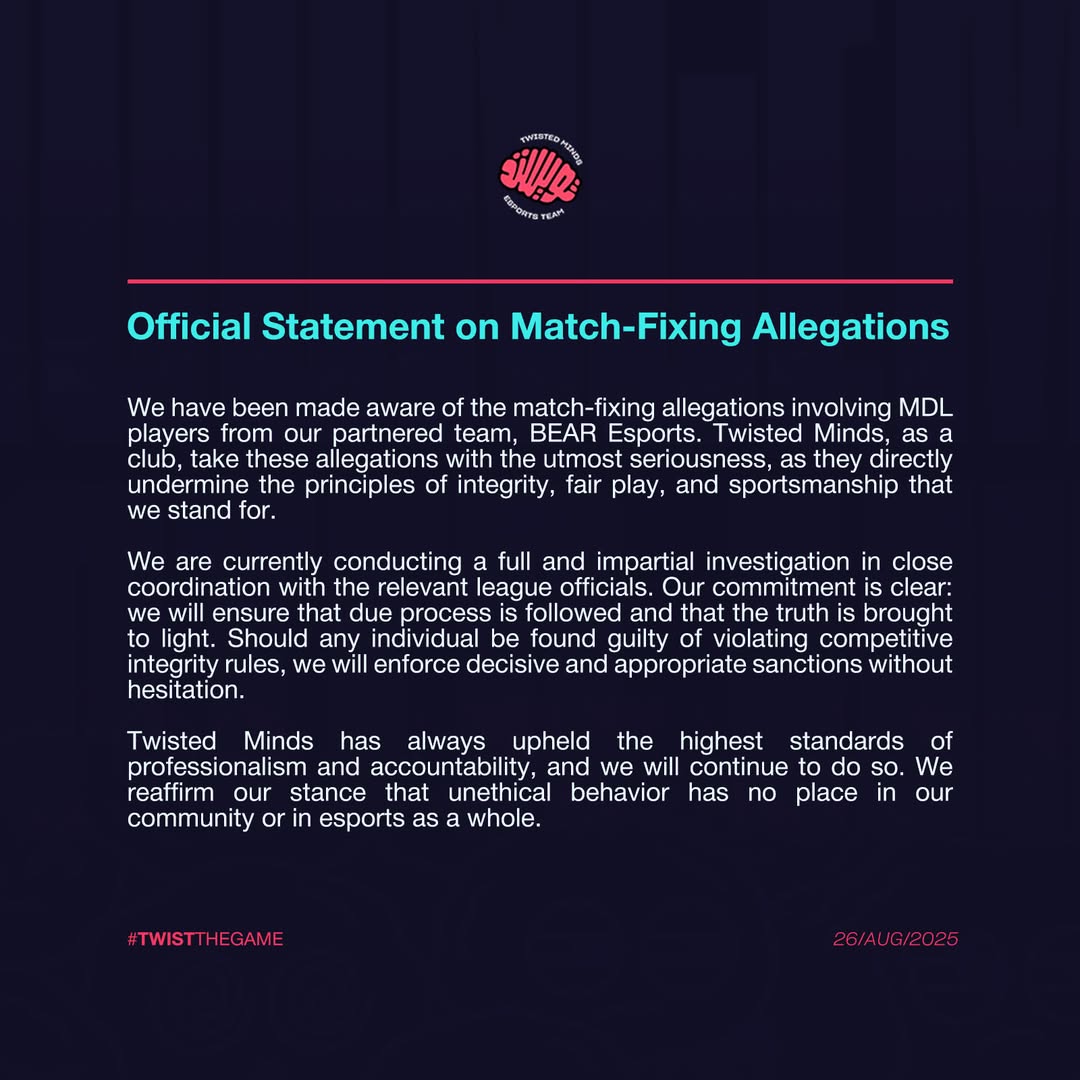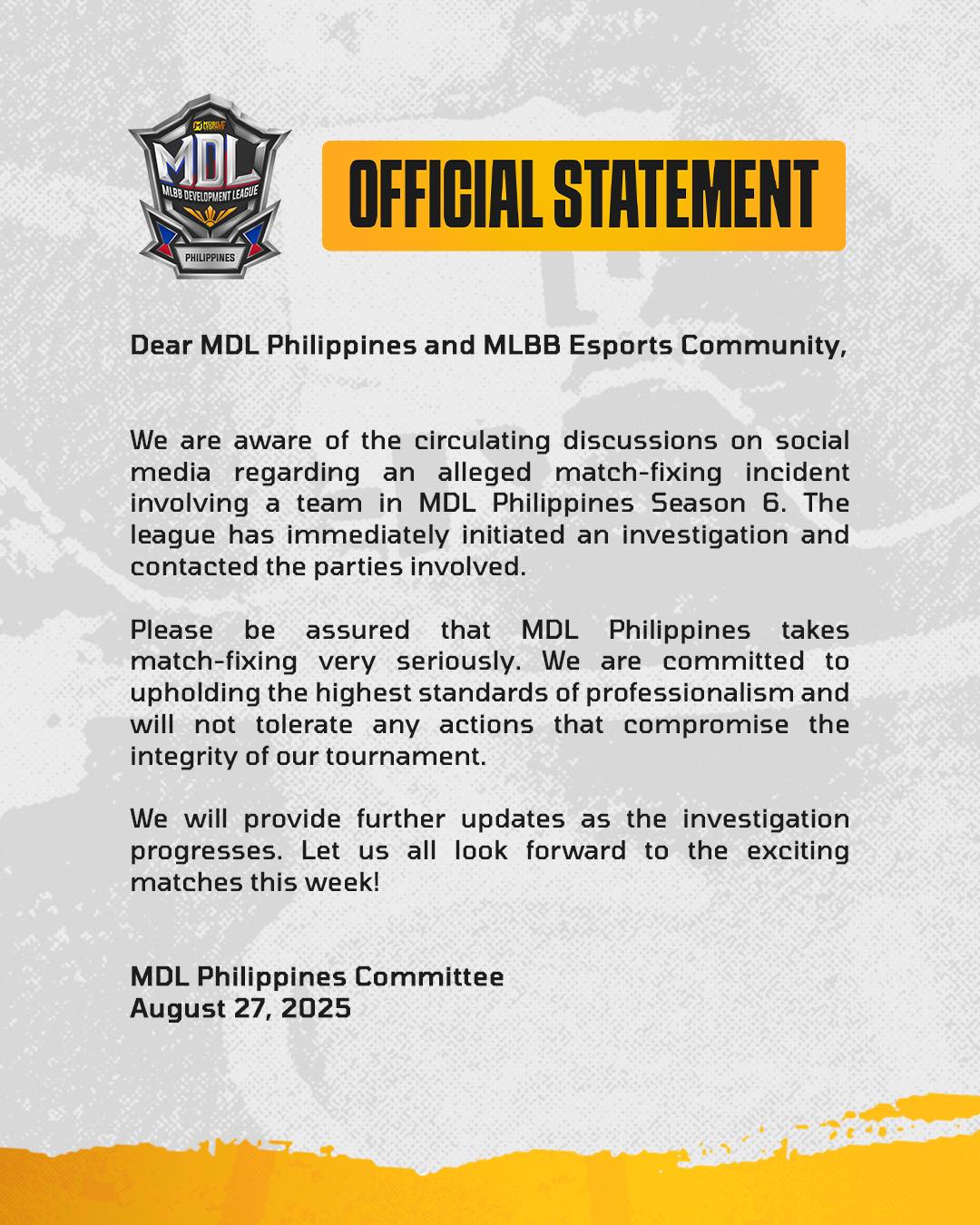Esports Match-Fixing Can Land You in Jail for Up to 6 Years
Allegations of esports match-fixing in the Mobile Legends: Bang Bang Development League (MDL) Philippines surfaced this week after screenshots allegedly showing conversations between a game fixer and players from Twisted Minds’ MDL team circulated online.
The supposed conversations quickly went viral, prompting concerns from fans and the wider esports community about the integrity of competition. In response, Twisted Minds released an official statement:

Likewise, MDL Philippines released a statement regarding the controversy:

While the allegations remain under scrutiny, the controversy has revived discussion about how the law treats match-fixing in the Philippines.
Imprisonment of up to 6 years
The governing law against game-fixing is Presidential Decree No. 483 (PD 483), issued in 1974. It penalizes game-fixing, point-shaving, and other fraudulent machinations in sports contests.
- Game-fixing: arranging or manipulating the outcome of a contest other than through fair play.
- Point-shaving: deliberately limiting one’s performance to affect the result.
- Game machinations: any trick, deception, or manipulation to alter the outcome.
Penalties for Athletes, Coaches, and Officials
- Players, coaches, referees, managers, or promoters found guilty face prisión correccional in its maximum period (4 years, 2 months, and 1 day to 6 years).
- A fine of ₱2,000 is also imposed, with subsidiary imprisonment if unpaid.
- If committed by a syndicate of five or more persons, the same penalties apply.
Penalties for Accomplices
- Other offenders involved in the scheme may face prisión correccional in its medium period (2 years, 4 months, and 1 day to 4 years, 2 months), plus a fine of ₱1,000.
Government Officials
- If the offender is a public official linked to sports regulation, the law imposes the same penalties.
- They also face perpetual disqualification from public office, and if foreign, deportation.
Protection for Whistleblowers
The decree also provides that anyone who voluntarily reports game-fixing to authorities or sports bodies is immune from prosecution, unless specifically cleared for arrest by the President or the Secretary of National Defense.
Calls for Stiffer Penalties
While PD 483 remains the governing law, its penalties—particularly the fines—are considered outdated by today’s standards. Lawmakers have since filed bills in Congress seeking to raise punishments for game-fixing to up to 12 years in prison and fines as high as ₱50 million, especially for syndicates.
Until such laws are enacted, however, PD 483 remains the baseline framework for punishing game-fixing in the Philippines.
ALSO READ:

